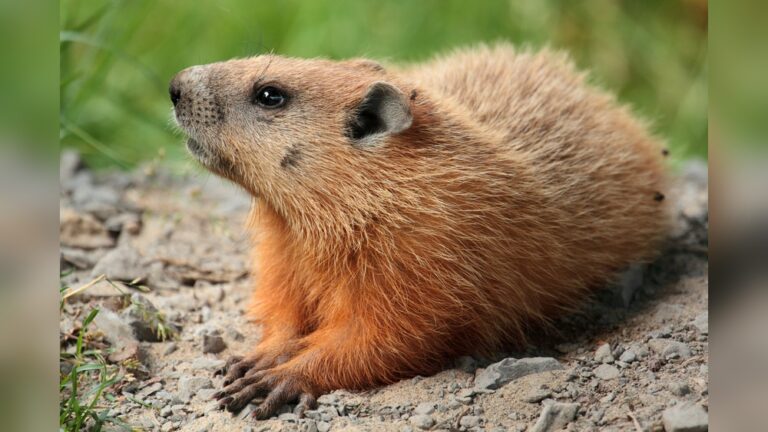Is It Legal To Own A Capybara: What You Need to Know Today
Have you ever wondered if you can have a capybara as a pet? These gentle giants are fascinating and adorable, but before you dream about sharing your home with one, you need to know the legal facts.
Owning a capybara isn’t as simple as it sounds. Laws vary depending on where you live, and breaking them can lead to serious trouble. Keep reading to find out if having a capybara is legal for you, what rules you must follow, and how to make sure your new pet stays happy and safe.
Don’t risk surprises—get the facts first!

Credit: www.thedunhamfarm.com
Capybara Ownership Laws
Capybaras are large, gentle rodents that attract many animal lovers. Their unique nature leads to questions about owning one as a pet. Laws about capybara ownership vary widely. Knowing these rules helps you decide if owning a capybara is possible and legal where you live.
Understanding capybara ownership laws protects both the animal and the owner. These laws cover many aspects such as permits, restrictions, and animal welfare. Let’s explore how these laws apply globally, by country, and at state or local levels.
Global Legal Status
Capybaras are native to South America. They are legal to own in some countries but banned in others. Many nations classify them as exotic or wild animals. This classification often means owning them requires special permits. Some countries prohibit private ownership entirely to protect wildlife.
Country-specific Regulations
The United States allows capybara ownership in certain states with permits. Canada generally prohibits owning them as pets. In the United Kingdom, owning capybaras is usually illegal without special licenses. Australia bans private ownership due to strict biosecurity laws. Brazil, the natural habitat, has laws regulating their capture and trade.
State And Local Rules
Within countries, states and cities have different rules. Some U.S. states require health and safety inspections before allowing capybaras. Others demand specific enclosures to keep the animals safe. Local laws can ban exotic pets even if the state allows them. Always check local regulations before acquiring a capybara.
Permit Requirements
Owning a capybara is not as simple as buying a pet. Many places require special permits to keep these large rodents legally. These permits help protect the animals and ensure owners meet care standards. Understanding permit rules is key before bringing a capybara home.
Types Of Permits
Permit types vary by state and country. Common permits include exotic pet permits and wildlife possession permits. Some areas demand special licenses for large or wild animals. These permits confirm you understand capybara care and local laws.
Application Process
Applying for a permit usually involves submitting forms to local authorities. You must provide details about your property and how you plan to care for the capybara. Authorities may require inspections or proof of experience with exotic pets. Patience is needed, as approval can take weeks.
Renewal And Compliance
Most permits need regular renewal, often yearly. Renewals check that you still meet all care and safety rules. Compliance includes proper housing, diet, and health care for your capybara. Authorities may visit to confirm your permit conditions are met. Failing to comply can lead to fines or loss of the permit.
Capybara Care Basics
Owning a capybara requires understanding their basic needs. These large rodents have specific care demands. Meeting these needs ensures they stay healthy and happy. Learn the essentials for proper capybara care below.
Habitat Needs
Capybaras need a spacious area to roam freely. They require access to water for swimming every day. A pond or pool is ideal for their natural behavior. Shade and shelter protect them from extreme weather. Safe fencing prevents escape and keeps predators away. Clean living space helps avoid diseases and stress.
Diet And Nutrition
Capybaras eat mostly grass and plants. Fresh hay should be their main food source. Provide fresh vegetables like carrots and squash for variety. Avoid sugary or processed foods that harm digestion. Fresh water must be available at all times. Balanced nutrition supports their growth and health.
Health And Veterinary Care
Regular health checks prevent many common illnesses. Find a vet experienced with exotic animals or rodents. Vaccinations and parasite control keep capybaras safe. Watch for signs of illness such as lethargy or loss of appetite. Prompt treatment improves recovery chances. Grooming, like nail trimming, helps maintain comfort.
Risks And Responsibilities
Owning a capybara carries serious risks and responsibilities. These animals need special care and proper living conditions. Owners must understand the laws and ethical concerns tied to capybara ownership. The impact on wildlife and the environment is also important. This section covers key points to consider before deciding to own one.
Legal Consequences Of Illegal Ownership
Many places have strict laws about owning capybaras. Illegal ownership can lead to fines and even jail time. Authorities may seize animals kept without permission. Legal trouble can cause stress and financial loss. Always check local rules before acquiring a capybara.
Ethical Considerations
Capybaras are social animals that need companionship and space. Keeping one alone or in a small area causes harm. Owners must provide proper food, water, and medical care. Neglecting these needs is cruel and unethical. Think carefully about the animal’s well-being before ownership.
Impact On Wildlife And Environment
Releasing pet capybaras into the wild harms ecosystems. They can spread diseases to native animals. Invasive populations disrupt local plants and animals. Keeping capybaras responsibly helps protect natural habitats. Respect wildlife and avoid actions that damage the environment.
Alternatives To Ownership
Owning a capybara is not possible for everyone due to legal and care challenges. Many people want to enjoy these animals without the risks of ownership. There are great alternatives that let you appreciate capybaras safely and responsibly. These options also support animal welfare and education.
Sanctuaries And Rescues
Sanctuaries offer a safe home for capybaras that cannot live in the wild. Visitors can see capybaras up close and learn about their needs. These places focus on animal care and rescue work. Visiting a sanctuary supports their mission and helps protect capybaras.
Virtual Experiences
Virtual tours and live streams bring capybaras to your screen. You can watch their daily activities and enjoy their calm nature. These experiences are easy to access from home. They help people connect with capybaras without any legal or care concerns.
Educational Opportunities
Zoos and wildlife centers provide programs about capybaras and their habitat. These programs teach how to respect and protect animals. Schools and community groups can join workshops or talks. Learning about capybaras this way builds knowledge and appreciation.
:strip_icc()/GettyImages-590084935-57fc0b545f9b586c35c9daae.jpg)
Credit: www.thesprucepets.com

Credit: a-z-animals.com
How Smart Pets Lover Can Help You with Is It Legal To Own A Capybara
Learning More Beyond Legalities: Embracing Responsible Capybara Care
Understanding whether it is legal to own a capybara is just the first step on a rewarding journey of responsible pet ownership. For anyone drawn to these gentle giants, diving deeper into capybara care basics and permit requirements is essential. These fascinating creatures need more than just legal clearance—they require thoughtful attention to their social, dietary, and habitat needs.
At Smart Pets Lover, we believe every pet parent deserves to feel confident and connected with their animals. Exploring the risks and responsibilities that come with owning a capybara can help you prepare emotionally and practically. If ownership isn’t feasible, consider alternatives that still satisfy your curiosity and love for unique pets.
For personalized guidance, consulting local wildlife authorities or animal welfare organizations can provide clarity on permits and care regulations. Remember, embracing knowledge is the best way to honor the special bond between humans and animals—because where every wag, purr, and chirp tells a story, so does every gentle splash of a capybara’s swim.
Frequently Asked Questions
Is It Legal To Own A Capybara As A Pet?
Laws vary by location; some states allow capybaras as pets with permits, others ban them. Always check local regulations before owning one.
What Permits Are Needed To Keep A Capybara?
Many regions require special permits or licenses. These ensure proper care and compliance with wildlife laws. Verify with local authorities.
Are Capybaras Considered Exotic Pets Legally?
Yes, capybaras are exotic animals. Their ownership is regulated to protect native ecosystems and animal welfare.
Can I Own A Capybara Without A License?
In most places, owning a capybara without a license is illegal. Proper documentation is necessary for legal ownership.
Conclusion
Owning a capybara depends on where you live and local laws. Some places allow it with permits, while others ban it completely. Capybaras need special care and space to stay healthy and happy. Think carefully before deciding to keep one as a pet.
Always check your area’s rules first to avoid problems. Owning a capybara is a big responsibility, not just a fun idea. Keep these facts in mind to make the best choice for you and the animal.






